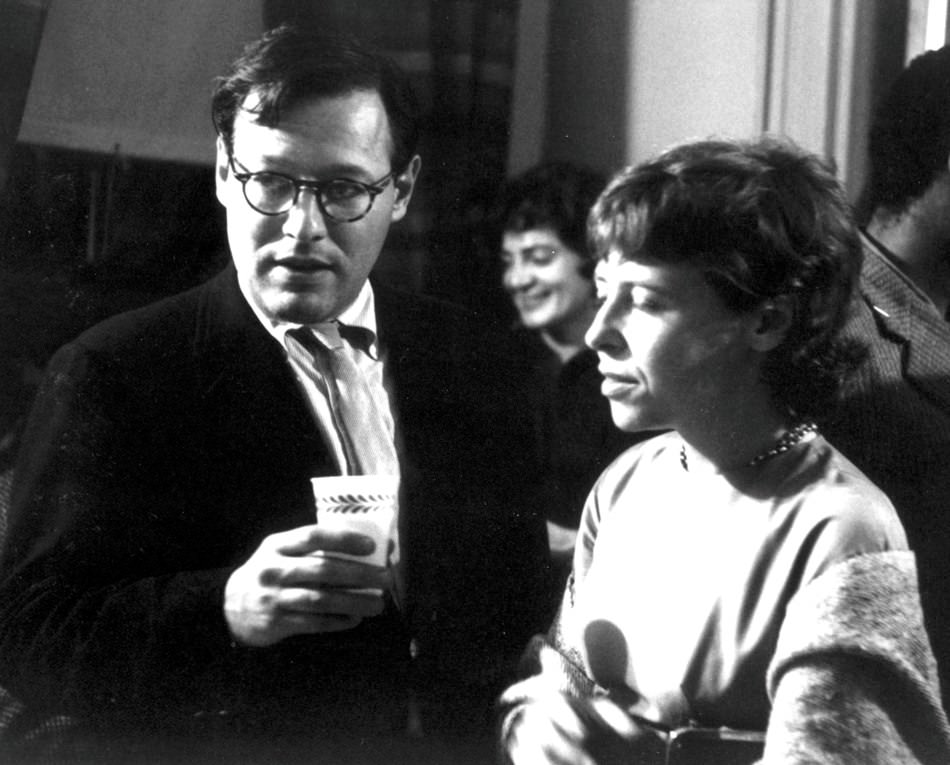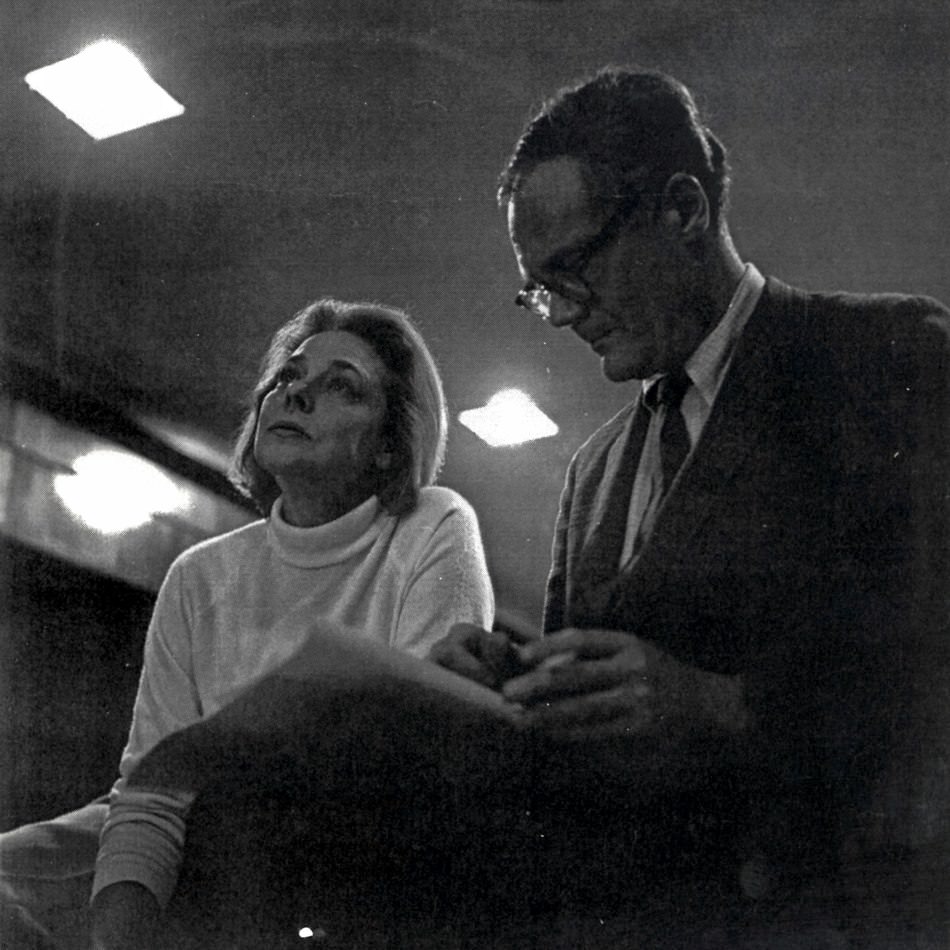Of the four friends who met for dinner fifty years ago in Barbara’s and my apartment on West Sixty-Seventh Street during the New York newspaper strike, I am the sole survivor. Though we had no such plan in mind beforehand, it was at that dinner that Elizabeth Hardwick, her husband Robert (Cal) Lowell, Barbara and I saw all at once the opportunity that would become The New York Review of Books. The dinner was impromptu, a last minute plan of Lizzie and Barbara’s, who had met unexpectedly on Columbus Avenue that afternoon; we sat around a makeshift table in our as yet barely furnished apartment, which, with its double-height living room and huge north-facing window, had been designed at the turn of the century for artists. The Lowells also lived on West Sixty-Seventh Street, an easy walk from our own building.
We were of course discussing the strike. I recall having said that, with the Times and Tribune gone, the world and its woes were out of sight and mind. We were living in a kind of nirvana, especially blessed, I added, to be without the dismal Sunday book reviews that Lizzie had savaged in Harper’s magazine for their “flat praise and faint dissention, the minimal style and the light little article, the absence of involvement, passion, character, eccentricity—the lack, at last, of the literary tone itself. ” Owing to the decline of serious reviewing, she wrote, “a book is born into a puddle of treacle.” Our friend Bob Silvers, a Harper’s editor, had commissioned her piece along with a few others for a special issue on “Writing in America.”
It was with Lizzie’s piece in mind that the four of us that evening saw the opportunity wordlessly presented by the strike: either create the kind of review that Lizzie demanded or forever stop complaining. There was no middle ground, no escape, and therefore no discussion. The opportunity—indeed the obligation—had arrived of its own volition. There was no ignoring it.
Assuming the unspoken decision had already been made, I spoke first and said that Lizzie’s essay and now the strike had left us no choice. No one disagreed. There were questions: would the strike give us time to create an issue? How would we finance it? Who would design and print it? As for the editor: it must be Bob Silvers, the brilliant young Harper’s editor. But would Harper’s release him? Could he join us without losing his job? I thought of a second possible editor should Bob say no, but I knew that unless Bob joined us we would not go forward.
We wanted a book review worthy of its subject, in which writers we admired—and who agreed with us that books were the ongoing critique, the sine qua non of civilization— would have a place to write at adequate length for readers like themselves and us. As for myself, I was a book editor at Random House and kept my distance editorially. I would arrange distribution and develop a budget. Bob was born to edit the review that Lizzie’s Harper’s article demanded. I called him the following day and, to our delight, he immediately accepted. He then called Barbara and asked her to be his co-editor.
That morning Lowell and I visited my bank to open an account, to which he contributed four thousand dollars from his trust fund. Meanwhile Bob and Barbara visited publishers who, with no way to advertise their books during the strike, committed to $10,000 worth of ads. With $14,000 in prospect, we approached a printer in Bridgeport recommended to Bob by the Village Voice. He agreed to print 100,000 copies if we paid in advance. I then asked Eastern News, the agency that distributed Anchor books, the series of literary paperbacks that I had launched at Doubleday when I worked there, whether he would place our as yet unnamed review in university stores. He agreed.
Meanwhile Bob made a list of a hundred or so possible contributors. I no longer have that list but it included, among many others, Edmund Wilson, Wystan Auden, Isaiah Berlin, F.W. Dupee, Paul Goodman, the philosopher Stuart Hampshire, Lizzie herself, Irving Howe, Alfred Kazin, Robert Lowell, Norman Mailer, Dwight Macdonald, Mary McCarthy, Victor Pritchett, Susan Sontag, William Styron, Gore Vidal, and Robert Penn Warren, who collectively shared the commitment to literature and the skills that Lizzie missed in the Sunday reviews. Kazin and Howe had also contributed to the Harper’s issue in which Lizzie’s article had appeared.
Bob and Barbara worked night and day assigning authors, finding a designer, hoping for the copy to arrive before the strike ended. Forty-five reviewers agreed to and met a three-week deadline, with no pay. That first issue looked nothing like what The Review looks like today. Each page, including the front cover, consisted of three unbroken columns of solid type, except where Barbara placed a few woodcuts. On the front page Fred Dupee reviewed Jimmy Baldwin’s The Fire Next Time, admiring its passion but objecting to its acceptance of violence. It achieved just the quality of gravitas and fluency we hoped for. No reader of that piece could fail to see the point of our project. The strike lasted just long enough for Eastern News to ship the entire first printing. There were no unsold copies. In an editors’ note we solicited readers’ opinions. Two thousand letters arrived urging us to continue. That fall we acquired a publisher, Whitney Ellsworth, to handle financial and production issues, and the first regular issue appeared.
Advertisement
What impresses me are the completely unanticipated events that came together to make The Review possible. The newspaper strike that provided the opportunity to make the kind of review that Lizzie’s article demanded. The chance meeting that afternoon when Barbara and Lizzie decided on dinner. Bob’s availability. The publishers’ unspent advertising budgets and the ability of Eastern News to reach the right readers. The willingness of forty-five authors to complete their unpaid assignments on time. The duration of the strike. That all this came together seems in retrospect to have been a miracle.





